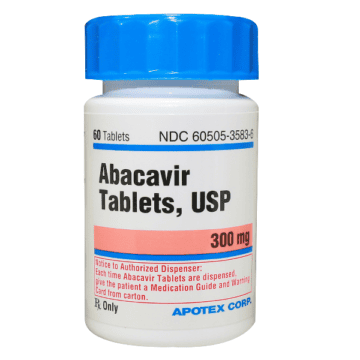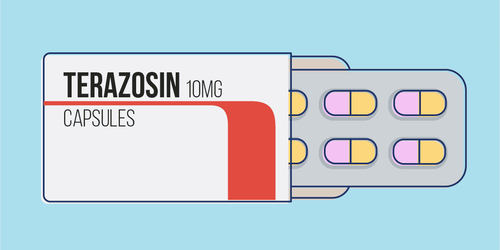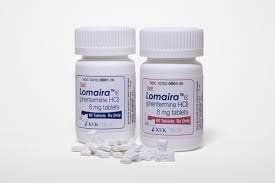This is an automatically translated article.
Weight loss surgery is a new trend for those who have not been successful with natural weight loss methods such as exercise, diet.1. Who can have weight loss surgery?
Not everyone can have weight loss surgery. Doctors usually prescribe weight loss surgery for the following subjects:Body with BMI >= 40. People who are overweight, men are about 100 pounds, women are 80 pounds. People with a lower BMI (35 to 40) with obesity-related health problems such as cardiovascular disease, type 2 diabetes, high cholesterol, sleep apnea . Tried but failed with weight loss measures (diet, exercise). People who already understand the dangers of surgery but still want to have it done.
2. How does weight loss surgery help you lose weight?
There are two types of weight loss surgery: restriction surgery and surgery to reduce absorption. The two surgical modalities help with weight loss in different ways.Restrictive surgery - restrictive surgery: The purpose of the surgery is to reduce the size of the stomach and limit the amount of solid food put into the body. If a normal stomach can hold about 3 pints of food, after weight loss surgery, the stomach can only hold 1 ounce of food, although over time it can hold 2-3 ounces of food. Malabsorptive Surgery: Surgery performed to change the way the digestive system absorbs food. This type of surgery is more complicated. Surgeons will perform procedures that remove part of the intestine, creating a shortcut for food to be digested. This means fewer calories are absorbed into the body. Combination of 2 types of surgery: The surgeon will remove part of the stomach, making the stomach smaller and holding less food. Thereby, making you full early, minimizing the amount of food supplied to the body.
3. Advantages and disadvantages of surgical methods

Có 2 phương pháp phẫu thuật giảm cân là Phẫu thuật cắt dạ dày và Phẫu thuật thắt dạ dày
Gastric ligation surgery is a minimally invasive surgical method that leaves a small incision. Surgery is performed with endoscopes and some other specialized tools No need to cut the stomach, intestines, has a faster recovery time than gastrectomy There is a possibility of recovery surgery by how to remove the bandage around the stomach The lining around the stomach can be loosened or tightened to control nutritional needs and lose weight. To tighten, your doctor will inject a saline solution into the dressing. To loosen it, fluid is removed from the dressing around the stomach with a syringe. Serious complications are rare. The bandages around the stomach can slip out of place, become too loose, or leak. In these cases, additional surgery may be needed Cons:
Less weight loss compared to gastric bypass surgery. Weight loss average 40 - 50% of excess weight You can gain weight back in later years High rate of additional surgery 3.2 Gastrectomy Advantages:
Weight loss fast and a dramatic decrease. Average weight loss is about 60-80% from excess weight Because of rapid weight loss, weight-related health problems such as diabetes, high blood pressure, high blood cholesterol, arthritis, apnea sleep and heartburn also improve quickly Most people with this surgery can keep their weight down by 50% compared to excess weight in the long term Surgery loses stomach tissue, because It also reduces levels of the hormone ghrelin - the hormone that stimulates appetite. Cons:
Gastric bypass surgery is considered dangerous and causes more complications May cause vitamin and mineral deficiencies in the body Surgery can cause dumping syndrome, which occurs when food moves pass too quickly through the stomach and intestines. Patients often present with symptoms including shaking, sweating, dizziness, nausea, and severe diarrhea. Gastrectomy is a non-reversible surgery, meaning there is no possibility of gastric bypass as well. initial. Surgery permanently changes the way your body digests food.
4. Some typical risks after weight loss surgery

Người bệnh có thể gặp tình trạng nôn do ăn quá vội và ăn nhiều thức ăn sau khi phẫu thuật giảm cân
Vomiting: Vomiting is caused by eating too quickly and too much food, not by not chewing properly. Constipation. Nutritional deficiencies such as anemia and osteoporosis. As with other surgeries, wound infection can occur 3 weeks after surgery. They are ruled out with antibiotics, rarely requiring repeat surgery.
Complications that can develop after bariatric surgery include:
Hernia Gallstones Ulcers Gastritis Severe fibrosis at new stomach pouch Excess skin may need to be removed in an additional surgery Dehydration Hair loss Kidney stones Low blood sugar Rare but serious complications include:
Fresh bleeding in stools or black stools Leaking in new connections made by bariatric surgery; these usually happen within 5 days of surgery Blood clots in the lungs, called a pulmonary embolism, are rare, but if they do, they are the most common cause of death after reduction surgery weigh. Blood clots can often be prevented with blood thinners and exercise. Blood clots in the legs, called deep vein thrombosis, pneumonia.
5. How much weight can be lost after surgery?5. How much weight can I lose after surgery?
After gastric bypass surgery, most people can expect to lose between 66% and 80% of their excess body weight. Most weight will drop to this level within the first 2 years.After gastric bypass, body weight is reduced by 40% to 50% of excess weight, typically within the first 2 years after surgery.
6. How does weight loss surgery affect overall health?

Người bệnh có thể gặp tình trạng khó thở khi ngủ sau phẫu thuật
Shortness of breath while sleeping Type 2 diabetes Gastroesophageal reflux disease (GERD) High blood cholesterol Degenerative or orthopedic trauma problems High blood pressure Asthma Urinary incontinence
7. How does weight loss surgery affect nutrition?
After weight loss surgery, the body has difficulty absorbing some important nutrients, including:Iron Vitamin B12 Folate Calcium Vitamin D Take a daily multivitamin in combination with other supplements, can prevent or reduce vitamin deficiencies.
8. What lifestyle changes are needed after weight loss surgery?
Over time, some people return to their original weight despite having surgery. This problem is common in people who eat high-calorie or fatty foods instead of healthy foods and eat them too often; people who rely on "soft meals" like ice cream and milk.The body can also change over time, leading to weight gain. The digestive tract may begin to absorb more calories or the size of the stomach may expand over time.
Here are some tips to help you stay fit in the long run:
Eat small meals : Adapting to small meals is challenging but necessary. You should eat small amounts of food slowly, chew it well, and eat plenty of protein. Prioritize a nutritious diet: Good nutrition is very important. You must also take the right supplements as recommended by your doctor, as severe malnutrition occurs easily after weight loss surgery. A dietitian can create a diet and nutrition plan to meet your needs. Exercise regularly: Many obese people are not used to exercise, a habit that is very important to prevent weight gain back. Once you start losing weight, exercising will become easier.

Cần tập thể dục thường xuyên sau phẫu thuật
9. How will the appearance change after weight loss surgery?
Once you start losing weight, you'll likely be thrilled with your new look. However, many people who lose weight often find their skin looking loose and baggy. You may want to have plastic surgery to remove this excess skin.10. How will life and relationships change after weight loss surgery?
Your relationships with friends and family can really change after weight loss surgery. For many people, food and drink are the basis for socializing. After weight loss surgery, you must find other ways to communicate without focusing on food.Also, when you lose weight, people will notice, and ask about your appearance. Prepare for these questions well in advance of your weight loss success and consider how you want to answer them.
11. Do you still feel like yourself after weight loss surgery?
Losing a significant amount of weight is no small matter. In fact, the changes are profound. You may feel strange with a new appearance that is so different from the one you used to be. You may feel overwhelmed by the lifestyle changes you have to make for the rest of your life. You used to have comfort eating and now you're going to have a hard time giving it up.Your doctor and support team can help you through this complicated period. Ask your doctor about support groups for people who have had weight loss surgery. This group of people will help you meet people who are making similar adjustments and help you stay on track with your weight loss program.
Vinmec International General Hospital is one of the hospitals that not only ensures professional quality with a team of leading medical doctors, modern equipment and technology, but also stands out for its examination and consultation services. comprehensive and professional medical consultation and treatment; civilized, polite, safe and sterile medical examination and treatment space.
Please dial HOTLINE for more information or register for an appointment HERE. Download MyVinmec app to make appointments faster and to manage your bookings easily.













